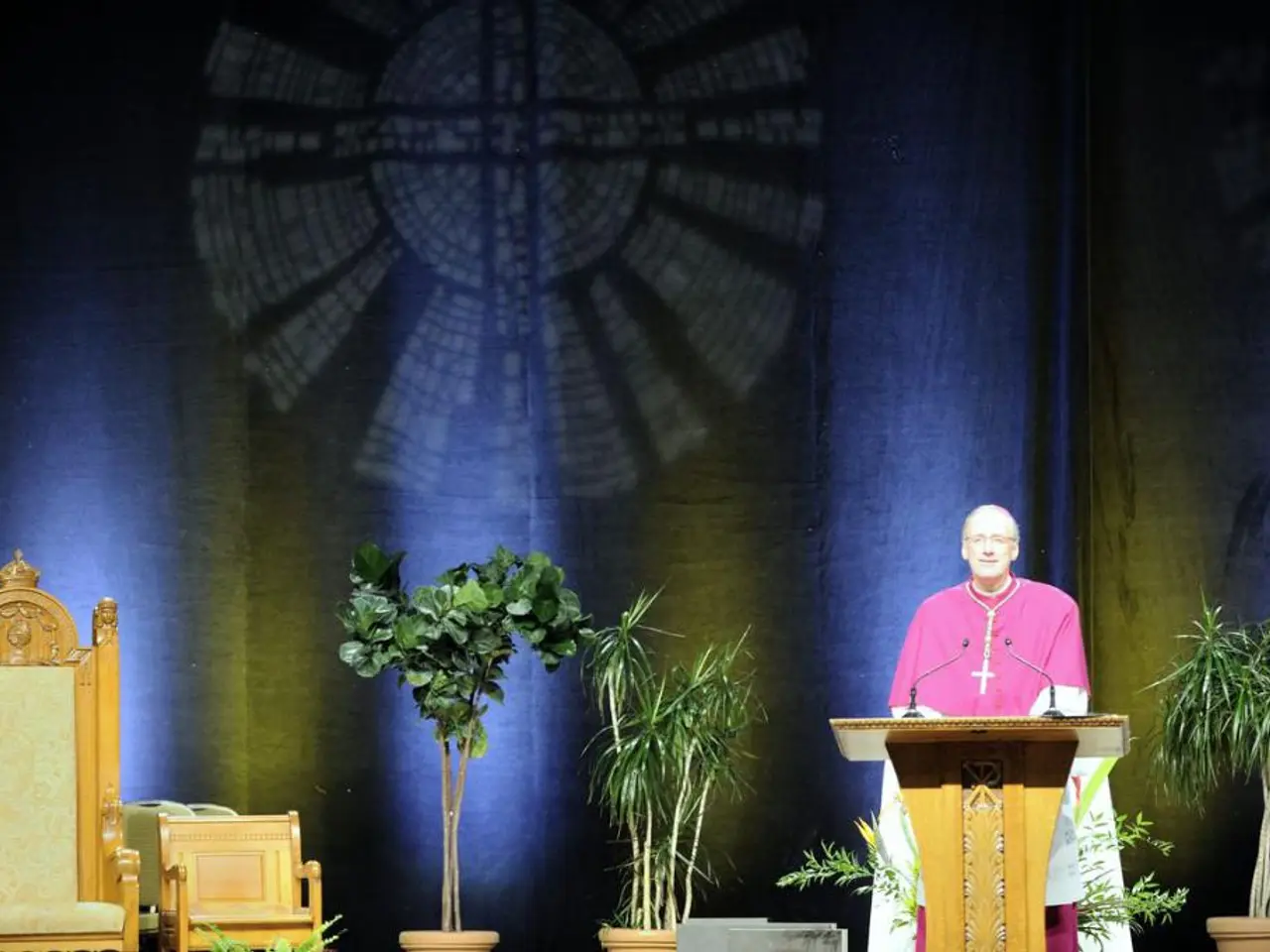Enlightened Darkness: The Debt of the Contemporary Age to the 'Age of Reason'
A Dive into Reason, Science, and Freedom: Exploring the Enlightenment's Lasting Impact
Let's delve into the Age of Reason, or Enlightenment, a historical period that championed reason, science, and the pursuit of knowledge. Its echoes are heard loud and clear today, shaping modern democracies, scientific progress, and our understanding of individual liberties. But what does this epoch hold for us in today's fast-paced world? Let's uncover the dark brilliance of the Enlightenment and its indelible legacy.
Key Insights
- The Enlightenment celebrated reason, logic, and evidence-based thinking.
- Modern governance, science, and education owe significant debt to this remarkable era.
- Enlightenment principles continue to guide discussions on fairness, freedom, and morality.
The Core Ideas of the Enlightenment
The Enlightenment spanned the 17th and 18th centuries, characterized by a profound shift from superstition to rationalism. Intellectuals such as John Locke, Voltaire, and Immanuel Kant championed:
- Reason Over Tradition: Dismissing blind faith in religion and advocating for intellectual inquiry.
- Balance and Liberty: Arguing for individual rights and challenging aristocratic power.
- Observational Science: Advocating for scientific methods that form the basis of modern scientific practices.
Modern Signs of Enlightenment Ideas
1. Governance and Human Rights
The principles of freedom and equality set by Enlightenment thinkers directly impacted the formation of modern democracies. Documents like the American Declaration of Independence and the French Declaration of the Rights of Man are built upon these ideas.
2. Education and Literacy
universal education, now considered a right, was promoted during the Enlightenment. Pushing for widespread literacy and critical thinking empowered individuals to question authority and pursue self-improvement.
3. Science and Technology
The scientific revolution that accompanied the Enlightenment resulted in groundbreaking discoveries. Figures like Isaac Newton and Galileo Galilei set the stage for modern physics, astronomy, and technology, laying the foundation for today‘s digital world.
A Darker Side to Enlightenment?
While the Enlightenment advanced moderate goals, it also laid the groundwork for controversial practices:
- Colonialism and Exploitation: Enlightenment beliefs were sometimes used to justify imperialistic expansion under the guise of civilizing other societies.
- Rigid Thinking: The emphasis on reason sometimes overlooked the capacity to appreciate individuals on a deeper, emotional level, leading to overly mechanical social systems.
Enlightenment Masters and Their Legacy
A Call for Another Enlightenment?
As the world grapples with challenges like climate change, inequality, and misinformation, the spirit of the Enlightenment offers a meaningful way forward. Reviving the principles of rational dialogue, scientific inquiry, and individual rights can help societies navigate these issues.
Key Lessons for the Modern Era
- Critical Thinking: In an era of social media and fake news, it's crucial to question sources.
- Global Cooperation: Problems like climate change demand collective action, echoing Enlightenment principles of unity.
- Moral Governance: Governance based on reason and transparency falls in line with the era's values.
Conclusion
The Enlightenment was not just a historical era but a beacon of human potential. Its ideals resonate throughout modern societies, driving progress and reminding us of our shared human obligation. Embracing its principles can pave the way to a brighter, more equitable future.
FAQs
Q1: What was the main goal of the Enlightenment? The Enlightenment sought to emphasize reason, knowledge, and science over religious dogma and superstition.
Q2: How did the Enlightenment impact modern democracies? It presented ideas like freedom, equality, and natural law, which laid the foundation for modern democratic institutions.
Q3: Is the Enlightenment still relevant today? Absolutely. Ideas like rationalism, individual rights, and scientific inquiry are essential in addressing contemporary challenges.
Q4: Were there any criticisms of the Enlightenment? Yes, critics argue that the Enlightenment's focus on reason sometimes disregarded feelings and diversity.
Q5: What's an example of an Enlightenment-era discovery? Isaac Newton's laws of motion and universal gravitation are notable scientific advancements from the era.
For Further Reading: The Best Non-Fiction Books of the Week: A Global Perspective
Further Insights
1. Politics and Governance
Enlightenment values provided the backbone for contemporary democratic systems, human rights frameworks, and the rule of law. These principles fostered transparent and accountable governance, individual liberties, and evidence-based decision-making in policy-making.
2. Addressing Global Challenges
The scientific spirit of inquiry inspired by the Enlightenment is crucial in tackling issues like climate change. Governments, international organizations, and scientists utilize scientific research to formulate climate policies, advocate for environmental protection, and support vulnerable communities affected by climate change—upholding Enlightenment ideals of human dignity and rights.
3. Education and Critical Thinking
Education systems emphasize critical thinking, scientific literacy, and evidence evaluation, empowering individuals to make informed decisions, participate effectively in democratic societies, and challenge misinformation.
4. Technology and Spirituality
The Enlightenment's focus on reason and inquiry has influenced new forms of spirituality, blending technology and personal meaning-seeking. For example, AI-powered meditation apps, virtual religious communities, and digital rituals represent a marriage of scientific tools and individual spirituality, embodying modern reinterpretations of Enlightenment openness to new knowledge and experiences.
5. A Future Enlightenment
The call for a new or "post-Enlightenment" era seeks to adapt and expand Enlightenment ideals to address the needs of today’s globalized, technologically advanced, and culturally diverse world. This movement involves diversifying perspectives beyond the historical European and male viewpoint and integrating technology to enhance democratic governance and societal well-being.
6. Navigating the Digital Age
As technology infiltrates personal and societal realms, the Enlightenment’s critical spirit remains essential in tackling ethical challenges in emerging areas such as AI, biotechnology, and digital culture. Reasoned dialogue and humanistic values will drive regulatory frameworks that ensure technologies serve the common good and protect individual rights.
- The principles of observation and evidence-based thinking, championed during the Enlightenment era, continue to align with modern discussions on politics, where data-driven decision-making is valued.
- The quest for scientific advancements, which was a key feature of the Enlightenment age, directly influences general news today, as breakthroughs shape our understanding of the universe and impact our daily lives.








